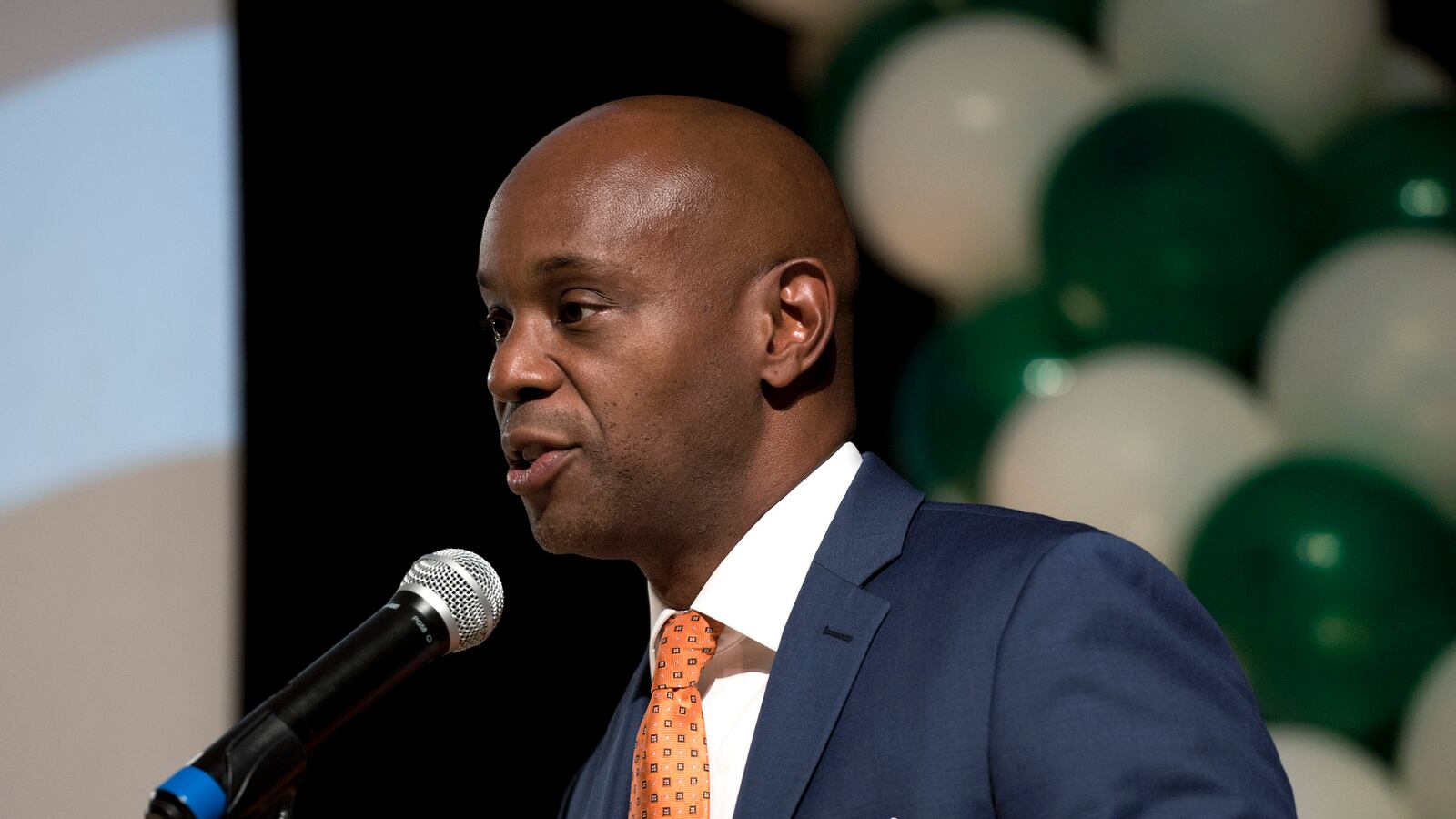Shelby County Schools Superintendent Dorsey Hopson has opened a crack in the door to charter school partnerships that might help his district avoid losing more schools to Tennessee’s turnaround district.
Hopson emailed his principals this week to clarify his recent comments to the editorial board of The Commercial Appeal about possibly recruiting charter organizations for turnaround work. The report’s original headline read: “Hopson says he’s willing to hand schools over to charters, if they have a plan for improvement.”
The superintendent quickly turned to Twitter to label the headline “misleading and inaccurate” and, as he sought to regain control of dialogue on the thorny matter, dispatched an email to his school principals.
“It is my top priority to ensure all of our schools have the necessary resources to provide students with the high-quality education they deserve,” he wrote on Tuesday. “If the Tennessee Department of Education offers us the opportunity to select a charter operator that is willing to collaborate closely with District leaders to improve a school instead of losing it to the (Achievement School District), then I believe it is our responsibility to explore the option.”
Hopson’s comments hint at a potentially significant shift for a district that has battled openly with the charter sector over students being absorbed by the state’s 6-year-old turnaround initiative known as the ASD.
They also point to the tough spot that the superintendent is in.
On the one hand, the growth of the city’s charter turnaround sector has been a thorn in the side of local school leaders since 2012 when the state-run district began taking control of low-performing schools and assigning them to charter operators. Now with 29 Memphis schools, the ASD has siphoned off thousands of students and millions of dollars in an already under-enrolled and under-funded school environment — and made mostly anemic academic gains. (The local district also oversees about 50 charter schools that it’s authorized.)
On the other hand, Shelby County Schools has its hands full trying to improve a substantial number of struggling schools. It’s made some important headway through its Innovation Zone, which adds resources, extends the school day, and pays more to top principals and teachers who are willing to do some of the toughest education work in America. But the iZone is an expensive model, and few of its schools have exited the state’s priority school list.
In addition, some education reform advocates are lobbying to shift Memphis to a “portfolio model,” in which districts actively turn over schools to charter operators and manage them more like stocks in a portfolio. In other words, successful ones are expanded and failing ones are closed. Indianapolis has a robust portfolio model and, last fall, the philanthropic group known as the Memphis Education Fund took several Memphis school board members there for a tour. (The Memphis Education Fund receives support from several local philanthropies, including The Pyramid Peak Foundation and the Hyde Foundation. Chalkbeat also receives support from Hyde; read about our funding here.)
In his email to principals, Hopson said the school board ultimately would decide whether to authorize charter schools for the district’s turnaround work, and that he expects to discuss the matter with members in the coming weeks.
“All that said, I want to be very clear that my preference would always be to keep schools under the governance of (Shelby County Schools),” the superintendent added.
Hopson has been in discussions with the state Department of Education about several school improvement avenues available in Tennessee’s education plan under a new federal law. Among them is an option for Shelby County Schools to voluntarily convert priority schools to a charter, according to department spokeswoman Sara Gast.
One school board member told Chalkbeat he needs more information from the district and state before he would support any move forward. Chris Caldwell added that he thinks the board isn’t up to speed on options under the state’s new education plan.
“At this point, there’s so little information that I’ve been given,” Caldwell said. “I don’t want to conjecture what (a charter conversion) would actually will be like, but I have reservations with any kind of collaboration with the state.”
What would it take for such a shift to be successful?
One Memphis charter advocate says the ground rules are already in place because of a charter compact developed in recent years to address turf issues such as facilities, funding, and accountability.
“In order for a charter to manage a district school that’s underperforming and for it to be successful, that charter needs to have supports from the district to be successful,” said Luther Mercer, the Memphis advocacy director for the Tennessee Charter School Center.
The next school board work session is scheduled for Jan. 23.

